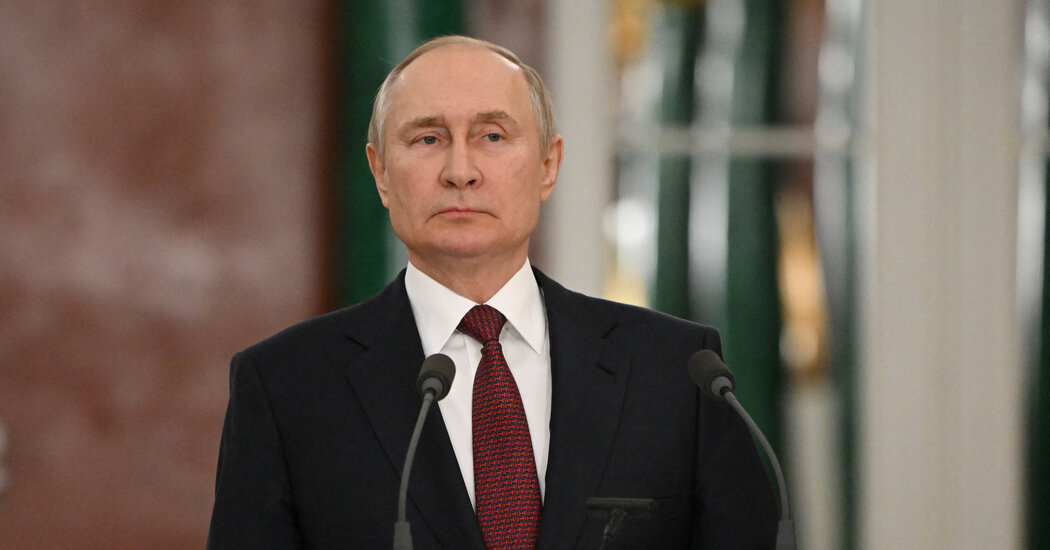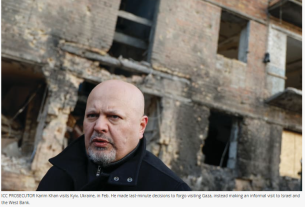Matt Olsen, the head of the Justice Department’s National Security Division, issued a stark warning about Russia’s growing efforts to target its critics, both within and outside its borders. Speaking in a recent interview, Olsen described how Russia is using a combination of coercion, intimidation, and violence to silence dissent, not only to eliminate opposition but also to send a powerful, chilling message to anyone who might challenge the Kremlin’s authority. This statement comes as part of ongoing discussions about Russia’s increasing use of state-sponsored repression against those who criticize President Vladimir Putin’s regime.
The Rising Threat to Critics and Dissenters
Olsen’s remarks highlight an escalating campaign by Russia against political opponents, journalists, activists, and anyone seen as a threat to the state. He noted that Russia’s actions have gone beyond traditional tactics of suppression, with the government increasingly using cyberattacks, disinformation, and even assassinations to neutralize critics. This is part of a broader pattern of authoritarian tactics that Russia has been using for years to silence internal opposition and extend its influence abroad.
One of the most high-profile examples of this tactic is the poisoning of Alexei Navalny, a prominent Russian opposition leader, in 2020. Navalny, a vocal critic of Putin, was nearly killed in what many Western governments, including the U.S., have labeled an attempted assassination carried out by the Russian government using a novichok nerve agent. After recovering in Germany, Navalny returned to Russia, where he was promptly arrested and imprisoned, sparking widespread international condemnation.
But the repression doesn’t end with high-profile figures. Olsen warned that Russia is going after dissenters at all levels, from grassroots activists to everyday citizens, as part of a broader strategy to maintain control. The government uses a variety of methods, from surveillance and harassment to more extreme actions like physical violence and imprisonment.
A Chilling Message to the World
The impact of these actions goes far beyond the individuals who are directly affected. According to Olsen, Russia’s aggressive targeting of critics serves a larger purpose: to deter potential dissent both inside Russia and internationally. By making examples out of those who speak out, the Russian government sends a message that challenging the regime will be met with harsh repercussions.
This kind of authoritarian behavior is not just limited to the borders of Russia. Russia’s global efforts to silence critics include using cyber tactics to harass dissidents, both Russian and foreign, who expose corruption or criticize Putin’s government. For example, Russian hackers have been implicated in multiple cyberattacks on Western institutions, including government agencies, media outlets, and NGOs that work on human rights and democracy promotion.
Russia’s reach is also felt in international diplomatic and political spheres, where Russian operatives have worked to influence elections, spread disinformation, and undermine efforts by foreign governments to hold Russia accountable. As Matt Olsen pointed out, these actions serve a dual purpose: eliminating perceived threats and sending a “chilling” message that Russia will go to any lengths to protect its power and stifle any challenges.
The United States’ Response
In his interview, Olsen emphasized that the U.S. government is fully aware of these growing threats and is taking steps to counter Russia’s tactics both domestically and internationally. He noted that the Justice Department and other U.S. agencies are working closely with allied nations, particularly within NATO, to address Russian intelligence operations, cyber threats, and malign influence.
One of the primary tools the U.S. has used to combat Russia’s repressive tactics is sanctions. The U.S. has levied multiple rounds of sanctions against Russian officials and entities linked to the Kremlin’s actions against critics. These sanctions aim to cut off financial resources and impose tangible costs on the individuals and organizations that support Russia’s repressive activities.
Moreover, the U.S. government has been working with international partners to increase accountability for those involved in human rights abuses in Russia and abroad. In response to Russia’s human rights violations, the U.S. State Department and other bodies have supported efforts to document abuses, support dissidents, and provide refuge to those fleeing political persecution.
Olsen’s comments underscore the growing concern in the U.S. about Russia’s global impact on democracy and free speech. As the Kremlin continues its crackdown on domestic and international critics, U.S. intelligence agencies are focused on tracking and neutralizing Russia’s efforts to spread its repressive influence.
The Global Implications of Russian Repression
Olsen’s warnings are particularly timely, given the escalating tensions between Russia and the West, especially in the wake of Russia’s invasion of Ukraine in 2022. As Russia faces growing international isolation and pressure from the West, it is likely to double down on its authoritarian tactics both at home and abroad.
The crackdown on critics is also a direct challenge to the global values of freedom and democracy. By targeting those who speak out against the regime, Russia is sending a message to the world that its government intends to remain in control at any cost. The international community must recognize these actions as not just domestic repression, but as part of Russia’s broader efforts to reshape the global order by using its intelligence services, cyber tools, and political influence to suppress dissent.
While the West continues to respond to Russia’s actions through sanctions and diplomatic pressure, the question remains: how far will Russia go to silence its critics, and what more can the international community do to protect free speech and support dissidents?



